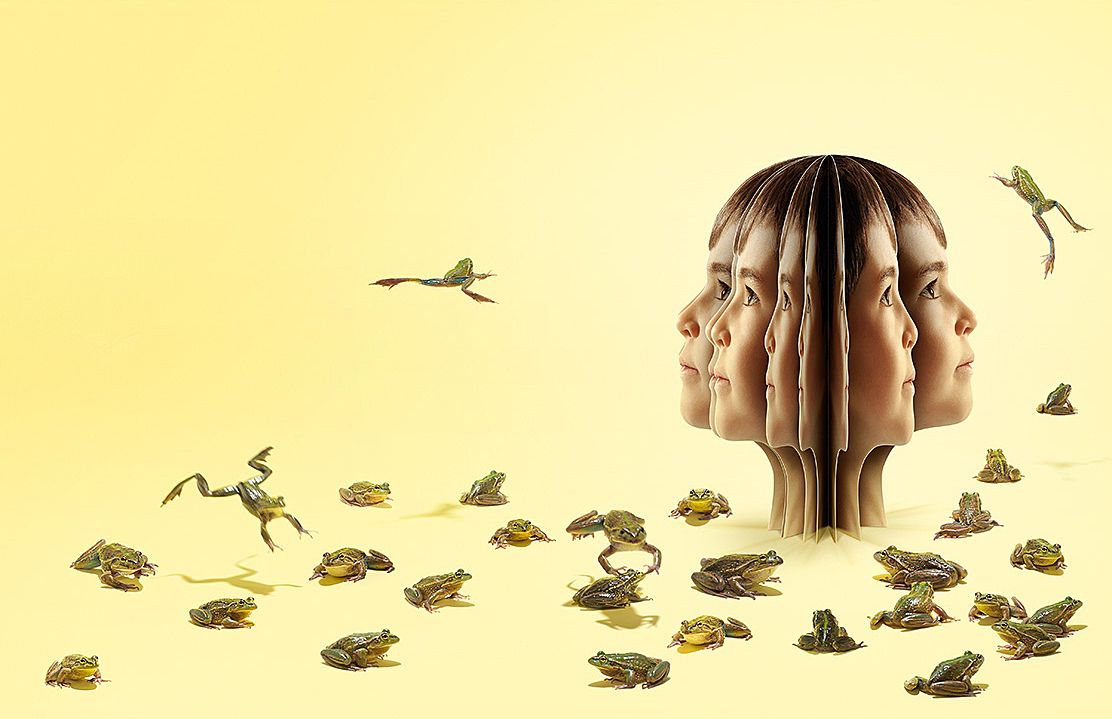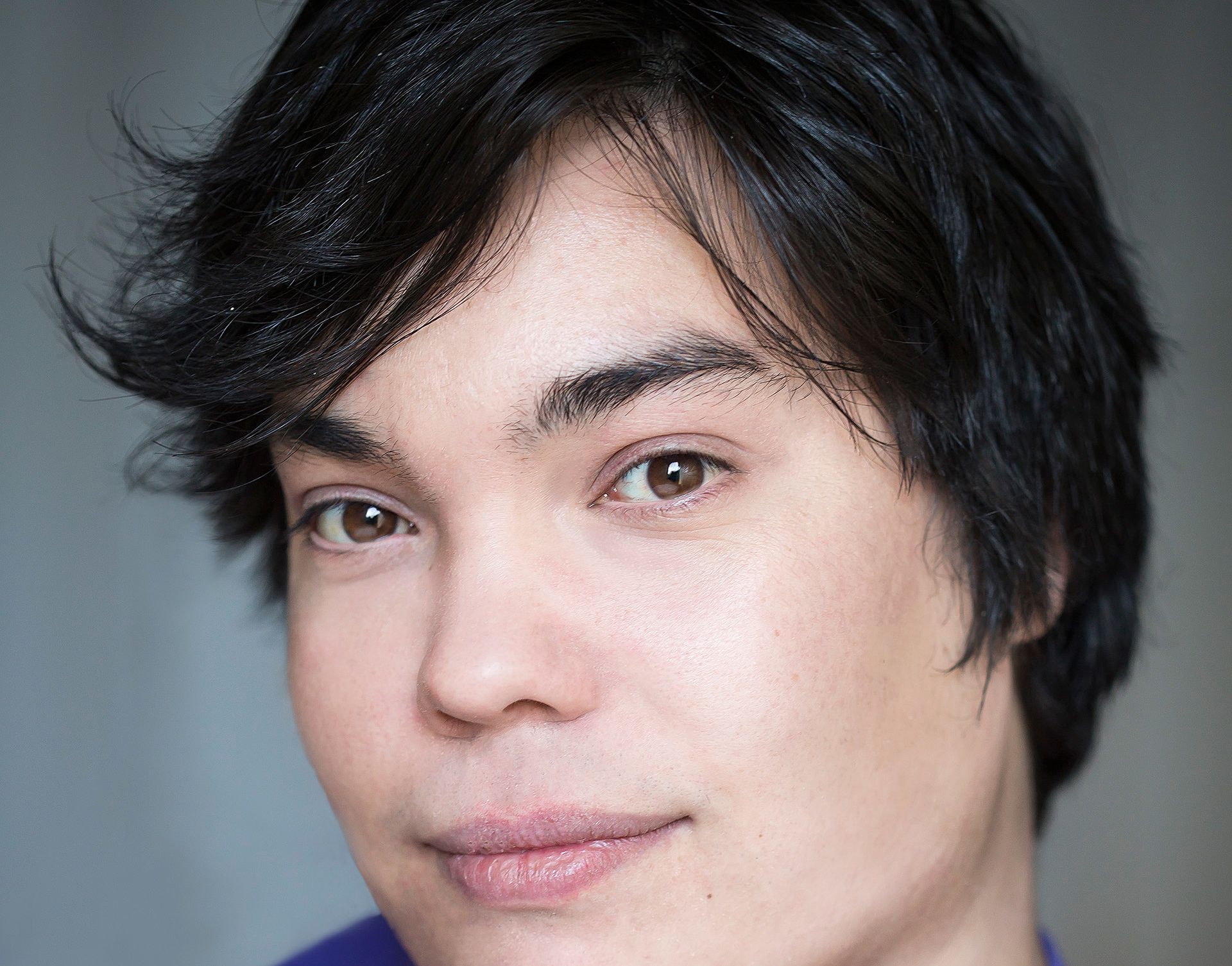On The Book of Everything
Sam Brooks on The Book of Everything, Silo Theatre's first production for 2015
Early last year, Silo Theatre and the Auckland Arts Festival met up to discuss a collaboration for 2015. They'd already produced Hui at the Festival the year before and wanted to create something special for the next one, and when The Book of Everything was suggested, they knew they had their play. For the Festival's Artistic Director Carla van Zon, it was an exciting opportunity to bring the show to Auckland, and for director Sophie Roberts, it was a chance to breathe life into a script that had made her laugh and cry within the first five pages - and it's not hard to see why. As a piece of writing, it is marvellously complex and devastatingly simple, summing up some of life’s most difficult issues in a handful of words. It is brutal. It is kind. It’s “the beautiful, magical, surprising, touching, terrifying, joyous, inspiring, funny, and ultimately uplifting story of timid 9-year-old Thomas Klopper, finding strength to overcome fear and achieve happiness, despite the cruel, grey oppression in his family.”
That’s how author and playwright Richard Tulloch succinctly sums up his play, an adaptation of the children’s book by Dutch author Guus Kuijer. Kuijer’s books have been famous for years in the Netherlands, and in 2012 he won the Astrid Lindgren Award, a prize that Tulloch describes as the equivalent of the Nobel Prize for children’s literature. “I’ve been lucky to live in Amsterdam, my wife’s hometown, off and on for over thirty years,” Tulloch explains, and it was while he was there that he discovered the book. “I knew Guus Kuijer’s other work – his children’s books were some of the first I read when I was learning Dutch, though I hadn’t heard of him for some years.” He read The Book of Everything and loved it immediately. “Apart from the power of the story,” he tells us, “Kuijer writes beautiful, clear, economical Dutch.” The story also had incredible staging opportunities: tropical fish in the canals, a plague of frogs and, most memorably, Jesus dropping in and chatting to Thomas.
Perhaps the most wondrous thing about The Book of Everything is how it reveals the special in the ordinary and how it captures the voice of a curious nine-year-old without condescension. We get to see his world with journalistic honesty and innocent conviction. Thomas’s mother is “very kind to everybody”. His sister is “stupid”. His neighbour Mrs van Amersfoort is teased by the other children because she is, sadly, “a witch” and the titular book is a nondescript brown paper-covered diary in which Thomas writes the mundane details of his day and all his hopes and dreams for the future.
I still don't know what my book's going to be about.
Despite being set in post-World War II Amsterdam – with names and references that are very much specific to that time and place – The Book of Everything feels immediately universal. Most modern-day Christian upbringings will reflect Thomas’s upbringing in very few ways, but the specificity of the story draws you in rather than excludes. When Thomas threatens to drown himself in the canal upon receiving a letter from the girl next door, it’s a sharp reminder that being a child is full of dramas, both outside and self-created, regardless of where you live or when you were you born, and Tulloch captures how simple and yet deeply felt these reasons can be.
The undercurrent of World War II runs throughout The Book of Everything. It isn’t explicitly mentioned, but it’s something the characters, especially the adults, are very aware of and the spectre of this world-shifting event ripples underneath the play. “Most of us know something of the grim story of Amsterdam in World War II through films and books like The Diary of Anne Frank,” says Tulloch. “The lovely thing about The Book of Everything is that we see its characters recovering hope and moving on from those dark days.”
It’s a stark contrast to a certain genre of post-war writing where people are wracked by guilt, haunted by loss, and who now find themselves in a world irrevocably damaged. Though these truths are undeniably present here, it’s shadowed by deep, stubborn resilience. “The scars are still raw, but neighbourhood ‘witch’ Mrs van Amersfoort, a former resistance fighter, refuses to dwell on the past because ‘it only gets you down.’ By forgiving without forgetting, she frees herself to listen with joy to Beethoven and read funny German children’s books.”
For Tulloch, the malaise in 1951 Amsterdam echoes into the current day. “In modern times in which we may despair of ever overcoming deep-seated religious prejudice and sectarian hatred, it’s encouraging to see how Amsterdam emerged from wartime occupation and terrible oppression to become the vibrant, peaceful, relatively tolerant multicultural city it is today. Wouldn’t we love such changes to happen in Iraq, Palestine, Ukraine and Syria?”
To tell the truth, we don’t like you very much just now, Lord Jesus.
It’s in its treatment of religion where The Book of Everything announces itself as a special piece of literature. Within left-leaning – if not entirely left-pandering – theatre, it’s not difficult to critique religion, or to outright slam it and the people who have faith in it, to reduce them to doctrine-following zombies and send them on their way. What once may have been a taboo topic is now an easy target for comedians as mainstream as Ricky Gervais or novels as door-stop worthy as the Da Vinci Code, and slamming it is about as interesting as dishwater.
But what The Book of Everything does is embrace the role of religion in people’s lives. It explores with generosity and an open mind why people might devote their lives to it and the ramifications of that devotion. Thomas’s father, for instance, is an incredibly devout man who punishes any deviation from his faith-based routine with violence, both physically and emotionally. In many other stories, Father, as he is named in the play, would be a clear villain, but here he’s allowed the complexities of being human. He’s a man who genuinely loves his family and his children, and he goes about it in the best way he can. The play never lets him off the hook – it can’t – but the compassion it shows towards Father belies a breadth of understanding of religion and its devotees that much modern art never tries to aspire to.
Even more impressive is how the play handles a child’s understanding of religion. Thomas understands his faith like most children who are brought up in a religious household do; a core part of his life, but without the understanding of its nuances and complexities. His existential angst as he grapples with this – and the events in his life - provides some of the most primal and powerful bursts of language in the play, like when he asks, simply: “Dear God, will you please exist?”
This balanced approach is a part of the original text, according to Tulloch. “The story is fiercely critical of the severe ‘thou-shalt-not’ bible bashing that I believe was part of Guus Kuijer’s own upbringing. But he’s balanced this brilliantly by introducing Jesus as a cool, attractive, down-to-earth onstage character. Whether he’s an imaginary friend or the Son of the Creator of the Universe doesn’t matter – he’s the sort of gently humorous confidante any of us would love to hang out with.”
The character of Jesus also has the most devastating stage direction in the play: “Jesus would like to stay, but he has run out of things to say.” If anything sums up the New Testament better than that simple sentence, I’ve yet to see it.
The Book of Everything is an achievement in many ways, but its most significant achievement is that it treats everybody as equals. Whether you’re the girl next door with a leather leg, or the woman who’s ridden a bike for forty-eight years or the terrifyingly devout father who is struggling to make ends meet, you’re worthy of compassion and respect.
It gives children the respect that is often denied to them, and it gives adults the gift of wonder that is often denied to them. Tulloch speaks emphatically of the importance of this. “Guus Kuijer takes children very seriously, knowing that, just like adults, they enjoy thinking about life’s greatest questions.” His friend and fellow writer Jonathan Shaw agrees with the sentiment. “It’s a play about a child that adults can enjoy without condescension… We adults are allowed to enjoy it as if we are children. And the children in the audience are allowed to engage with big themes: how do you deal with abuse of power? Is there a God?”
Children are rarely challenged to engage with big themes in our theatre, or afforded the opportunity to discuss these themes afterwards. Theatre is there for their delight, their education, their wonder. The Book of Everything is not this theatre, and has no interest in being this theatre. It invites us – adults and children alike – to engage with big themes, and embraces us when we do, whether we’re at the start of our life, stumbling through it or towards the end. This quality is special. It is significant. It is needed.
It is everything.
The Book of Everything plays as part of the Auckland Arts Festival
from Saturday 14 March - Sunday 22 March
Tickets available through Q Theatre

